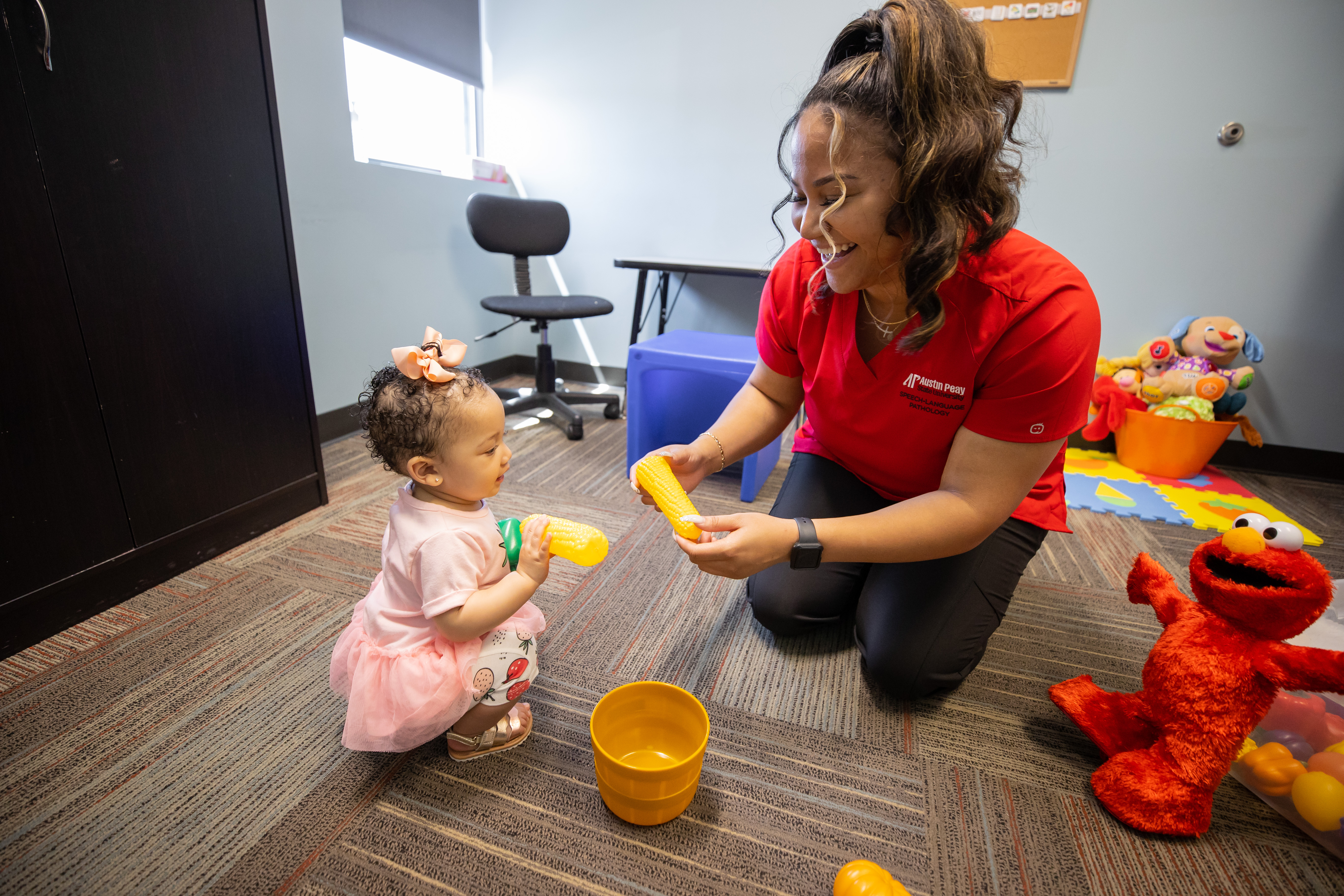What Makes a Good Speech Pathologist? Key Qualities to Look For
Just How a Speech Pathologist Can Aid Improve Interaction Abilities
Efficient interaction is a foundation of personal and expert success, yet many people encounter obstacles that hinder their capability to reveal themselves clearly. A speech pathologist is geared up to deal with these barriers via targeted analysis and treatment techniques tailored to each person's requirements. By utilizing evidence-based therapeutic techniques, they not just function to improve speech and language disorders yet likewise improve overall communicative capability. Recognizing the diverse role of a speech pathologist discloses exactly how their competence can transform lives, welcoming a closer evaluation of the details approaches and end results connected with their technique.
Recognizing Communication Problems
Understanding interaction disorders is crucial for acknowledging just how they impact people' ability to reveal themselves and involve with others. Communication conditions incorporate a vast array of difficulties that impact speech, language, and social communication, typically preventing effective communication. These problems can arise from different variables, including neurological conditions, developing hold-ups, physical impairments, or psychological problems.
Speech problems may manifest as problems in expression, fluency, or voice manufacturing, influencing how words are pronounced or spoken. Language conditions, on the various other hand, entail challenges in understanding or using language, which can hinder both verbal and non-verbal interaction. Social interaction problems are identified by difficulties in the pragmatic aspects of communication, such as taking turns in conversation or understanding social cues.
The repercussions of communication conditions are extensive, affecting not just the individual's capability to communicate ideas and feelings however likewise their social connections, academic chances, and general lifestyle. Awareness of these disorders can foster empathy and assistance, urging effective techniques for communication and engagement. Understanding the complexities of interaction problems is a critical action in the direction of promoting inclusivity and dealing with the needs of those affected.
Function of a Speech Pathologist
Speech pathologists often play an important role in diagnosing and dealing with interaction problems, utilizing a series of evidence-based techniques customized to every individual's demands. These experts deal with people throughout the life expectancy, from youngsters with speech delays to grownups recuperating from strokes or terrible brain injuries. Their competence encompasses a selection of interaction issues, consisting of articulation, voice, fluency, and language disorders.
In restorative settings, speech pathologists make use of structured treatments developed to boost communication abilities. They may apply techniques such as speech workouts, language games, and social interaction training to help with renovations in expressive and responsive language capacities. Speech Pathologist. Furthermore, they enlighten clients and their households concerning efficient interaction techniques and adaptive approaches to navigate daily communications
Beyond direct therapy, speech pathologists team up with other health care caretakers, instructors, and professionals to guarantee a thorough approach to treatment. They promote for clients by supplying sources and support, enabling individuals to accomplish their interaction objectives and boost their total quality of life. As experts in the field, speech pathologists are necessary in cultivating reliable interaction, advertising freedom, and enhancing social participation for those with communication challenges.
Assessment and Diagnosis Process
The assessment and diagnosis process conducted by speech pathologists generally involves an extensive assessment to determine communication disorders accurately. This process starts with a detailed why not try this out medical history, where the medical professional collects essential info regarding the individual's medical, instructional, and developing history. Comprehending the context of the person's interaction troubles is necessary for a precise diagnosis.
Following the medical history, speech pathologists use standardized examinations and casual evaluations to review numerous elements of communication, consisting of speech noise production, language understanding, expressive language, and social communication abilities. These evaluations are customized to the person's age and particular concerns, giving important data for analysis.
Observation is likewise a vital component of the assessment process, as it allows the medical professional to see direct exactly how the specific interacts in all-natural settings. Furthermore, meetings with household participants and educators can offer insight into the person's communication difficulties throughout different settings.
Once the analysis is complete, the speech pathologist manufactures the findings to figure out a diagnosis and suggest ideal interventions. This thorough evaluation procedure ensures that individuals obtain targeted support tailored to their one-of-a-kind communication requirements, laying the structure for effective restorative approaches.
Therapeutic Methods and Approaches
Numerous restorative methods and approaches are employed by speech pathologists to attend to a selection of interaction disorders efficiently. One extensively made use of method is articulation therapy, which concentrates on dealing with speech appears through repetition and visual hints. This method is specifically beneficial for individuals with speech sound conditions.
One more efficient method is language treatment, which boosts both meaningful and responsive language abilities. This might entail interactive tasks that advertise vocabulary growth, sentence framework understanding, and conversational abilities. In addition, speech pathologists often use social skills educating to boost practical language capacities, making it possible for people to browse social interactions much more effectively.
Fluency shaping and stuttering adjustment methods are specifically designed to assist those experiencing fluency disorders. These strategies aid customers establish smoother speech patterns and handle the physical and emotional parts of stuttering.
Moreover, augmentative and alternate interaction (AAC) systems are used for individuals with severe interaction problems. These systems, which can include gestures, icons, or electronic devices, give crucial assistance for efficient interaction.
Advantages of Speech Therapy

In addition, speech therapy can aid in establishing crucial listening and comprehension skills, cultivating far better interaction in discussions. People with cognitive-communication conditions can also profit, as treatment concentrates on reinforcing memory and analytic capabilities, necessary for effective communication.
An additional crucial facet is the emotional support provided during therapy sessions. Speech pathologists develop a safe atmosphere, encouraging people to get over stress and anxiety and irritation pertaining to their communication problems. This assistance can bring about boosted self-worth and total psychological health.
Additionally, early treatment through speech treatment can stop further complications, making sure that individuals reach their full communicative possibility. In general, the advantages of speech therapy prolong past simple speech enhancement, positively affecting various dimensions of life for those influenced by interaction troubles.
Conclusion
In summary, speech pathologists play a crucial function in resolving communication conditions via assessment, medical diagnosis, and customized healing interventions. By employing evidence-based strategies, these specialists improve people' speech and language capabilities, promoting improved clearness, fluency, and social interaction abilities. The benefits of early intervention highlight the relevance of looking for assistance from speech pathologists, as their experience can significantly boost communicative possibility, ultimately resulting in better success in both specialist and individual balls.

Speech pathologists regularly play a vital role in dealing with and detecting interaction problems, using an array of evidence-based strategies customized to each individual's needs. As professionals in the area, speech pathologists are essential in promoting efficient communication, advertising self-reliance, and boosting social participation for those with interaction challenges.
